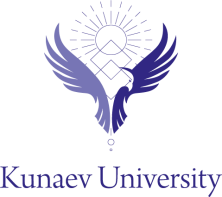Since January 30, 2017, in the Eurasian Law Academy named after D.A. Kunayev in accordance with the Order of the Minister of Education and Science of the Republic of Kazakhstan No. 50 dated January 21, 2016, the classes in the form of dual training are held.
By the order of the Chancellor of the Academy the Dual Training Center has been established. This center is mainly composed of specialists with extensive experience in law enforcement agencies and other organizations. In order to implement the "State Program of Education Development in the Republic of Kazakhstan for 2011-2020" the Regulations on the Dual Training Center were developed. The Center organizes its work in accordance with the working curriculum, the schedule of the educational process, and programs of professional practice.
The primary purpose of the Dual Training Center is as follows:
- ensuring consolidation of students' theoretical knowledge, acquisition of necessary skills and practical skills in their chosen profession, as well as studying and mastering the positive experience of law enforcement agencies and other organizations regardless of their form of ownership;
- development of students' creative inclination and interest in their future profession, consolidation of theoretical and practical knowledge, skills and abilities obtained in the process of training;
- training of qualified legal professionals who are competitive in the labor market;
- provide students with a comprehensive understanding of the activities of law enforcement agencies, the bar, prosecutors, legal services, international organizations and agencies, and other organizations related to legal issues.
The Dual Training Center of the Academy for practical and educational purposes provides mobile court sessions of district courts of Almaty, considering criminal, civil and administrative cases.
Dual education (Duales Studium) - a new concept of higher professional education, which assumes that the training is carried out simultaneously both on the basis of an educational institution and on the basis of law enforcement agencies and other legal institutions.
Under the dual system of education students and masters receive deeper knowledge and skills in the chosen profession. The experience of using dual system of education has shown the following advantages of this system in comparison with the traditional one:
- dual system of specialist training eliminates the gap between theory and practice;
- high chances of employment, as graduates fully meet the employer's requirements;
- training is as close as possible to the conditions of the future profession;
- the psychology of the future employee is formed;
- dual system of training creates high motivation for gaining knowledge and acquiring skills at work, as the quality of their knowledge is directly related to the performance of duties at workplaces;
- the interest of the heads of the agencies concerned in the practical training of their potential employee.
Disciplines studied in-depth in dual education:
- Criminal Procedure of the RoK
- Criminal Law of the RoK
- Forensics
- Advocacy
- Prosecutorial supervision
- Drawing up criminal procedural documents
- Classification of crime
- Forensic examination
- Drawing up civil procedural documents
- Business organization and resolution of arbitration disputes
- Labor law of the RoK
- Legal regulation of housing and land relations
- Legal regulation of banking and insurance legal relations
Types of classes
- Role plays
- Conducting an investigation in a training criminal case
- Conducting all investigative activities
- Drawing up all criminal procedure documents
- Tactical exercise
- Trials
- Participation in investigations of specific criminal cases in law enforcement agencies
- Conducting a counseling session
- Drawing up all civil procedural documents
- Participation in civil court proceedings
Employment prospects
- Court
- Prosecutor's Office
- Ministry of Internal Affairs
- National Security Committee
- National Anti-Corruption Bureau of the Ministry of Civil Service of the Republic of Kazakhstan
- Ministry of Justice
- Advocacy
- Notaries
- Akimats
- State authorities
- Maslikhats
- Banks
- Insurance companies


